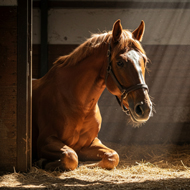New website to protect animal lovers from scams

The website will allow anyone to report suspicious websites or traders in confidence.
The UK’s top welfare organisations, trade associations and veterinary bodies have joined forces to protect the public from ‘dodgy pet sellers’.
Chaired by Dogs Trust, The Pet Advertising Advisory Group (PAAG) includes the BVA, Cats Protection, City of London Trading Standards and the Exotic Pet Trade Association.
Together, the organisations are fighting back against unscrupulous pet sellers that make a living trading animals that are often sick, underage or illegally imported.
The move comes after research by PAAG found that 37 per cent of the British public did no research at all before buying a pet. With around 1,000 new online pet adverts appearing every day, the group has launched www.howtobuyapet.co.uk to give the public the knowledge they need to spot an untrustworthy advert or scam.
The website centres on the research prospective owners should undertake before buying a pet and what they can expect from pet ownership. It will also provide regular updates of scams to be aware of and allow anyone to report suspicious websites or traders in confidence.
PAAG chair Paula Boyden said: “Many of these sellers are underhand, putting profit before welfare. The public – who have the best intentions and want to give an animal a loving home - are not at fault.
“HowToBuyAPet.co.uk is designed to protect them; to help stop people becoming a victim of a scam and to eliminate their chance of ending up with a sick pet, huge veterinary bills and heartbreak. We want our website to become the first step in their journey to getting a happy, healthy pet.”
In addition to its public advice, PAAG says that it will continue to work alongside classified websites such as Gumtree and Pets4Homes to remove illegal adverts. It is also pressing for all websites to commit to a set of minimum guidelines which all of their animal adverts should abide by.
Paula continues: “We want the day to come when people are confident regarding the authenticity of an advert or seller. We are working hard today, to ensure the pet owners of tomorrow can buy a happy, healthy pet knowing it has been bred responsibly and the person they are buying from can be trusted.
“We would always encourage people to look at rehoming a rescue animal, but if you do decide to buy from a breeder, make sure you do your research to ensure you’re buying from a trustworthy source.”



 Zoetis UK has called on horse owners to complete a short online survey about their horse's behaviours.
Zoetis UK has called on horse owners to complete a short online survey about their horse's behaviours.